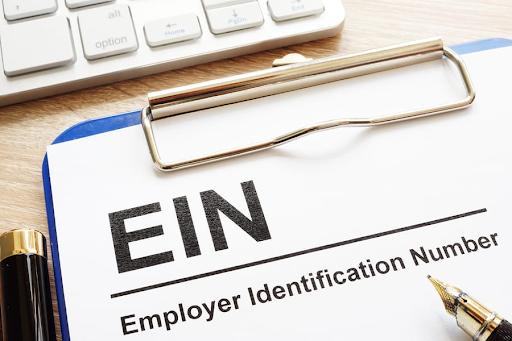What's the difference between an LLC and a corporation?
- Limited Liability Company
- Also known as an LLC, the Limited Liability Company creates a legal separation between the business owners and the business itself. When it’s incorporated, an LLC is recognized as a legal entity in its own right.
- An LLC is a great option for small business owners. This is because your personal assets can’t be used to satisfy business liabilities and there are some tax benefits as well. It’s also much simpler to register than a full-fledged corporation.
- C Corporation
- C Corporations are usually large entities with multiple investors and shareholders. Like other incorporated businesses, the C Corporation legally separates the owners’ and business’s assets and liabilities.
- There are a variety of responsibilities that come with establishing a C Corporation. Some of these include the duty to hold annual meetings and have a board of directors that’s voted in by shareholders.

Both protect owners so they're not personally on the hook for business liabilities or debts. But, key differences include how they're owned (LLCs have one or more individual owners and corporations have shareholders) and maintained (corporations generally have more formal record-keeping and reporting requirements). Even though LLCs are considered easier to start and maintain, investors and brands tend to prefer corporations.
How are different business types taxed?
LLCs, S corporations, and sole proprietorships are taxed once on profits received. C corporations are taxed twice; the business pays taxes at the corporate level, and shareholders pay taxes on income received.
Which business types give me personal liability protection?
LLCs and corporations. You don't get personal liability protection with sole proprietorships or DBAs.
How to Start a Business
1. Choose a Business Idea
Take time to explore and research ideas for your business. At this stage, take into consideration your own interests, skills, resources, availability, and the reasons why you want to form a business. You should also evaluate the likelihood of success based on the interests of your community, and whether your business idea will meet an unmet need.
2. Decide on a Legal Structure
- The most common legal structures for a small business are:
- Limited liability company (LLC)--Recommended
- Corporation.(C-corp)--Recommended
- Sole proprietorship
- Partnership
3. Choose a Business Name
For LLCs and corporations, you will need to check that your name is distinguishable from the names of other business entities already on file with the Colorado Secretary of State (SOS). You can check for available names by doing a business entity name search on the SOS website. There are certain name requirements for LLCs and corporations (like including a word such as "LLC" for LLCs or "Corporation" for closely-held corporations).
4. Register Your Business Entity With the Secretary of State.
Cost for All states:

| State | LLC filing fees |
|---|---|
| Alabama | $200 |
| Alaska | $250 |
| Arizona | $50 + publication fee |
| Arkansas | $45 (online filing) or $50 (paper-based) |
| California | $70 |
| Colorado | $50 |
| Connecticut | $120 |
| Delaware | $90 |
| District of Columbia (D.C.) | $220 |
| Florida | $125 |
| Georgia | $100 |
| Hawaii | $50 |
| Idaho | $100 (+$20 if you mail a paper from) |
| Illinois | $150 |
| Indiana | $90 |
| Iowa | $50 |
| Kansas | $165 |
| Kentucky | $40 |
| Louisiana | $100 |
| Maine | $175 |
| Maryland | $100 |
| Massachusetts | $500 |
| Michigan | $50 |
| Minnesota | $135 |
| Mississippi | $50 |
| Missouri | $105 |
| Montana | $70 |
| Nebraska | $100 + publication fee |
| Nevada | $75 |
| New Hampshire | $100 |
| New Jersey | $125 |
| New Mexico | $50 |
| New York | $200 + publication fee |
| North Carolina | $125 |
| North Dakota | $135 |
| Ohio | $99 |
| Oklahoma | $100 |
| Oregon | $100 |
| Pennsylvania | $125 |
| Rhode Island | $150 |
| South Carolina | $135 |
| South Dakota | $150 (or $165 if filed by paper) |
| Tennesse | $300 minimum (+$50 per extra member) |
| Texas | $300 |
| Utah | $70 |
| Vermont | $125 |
| Virginia | $100 |
| Washington | $200 |
| West Virginia | $100 + $1 |
| Wisconsin | $130 |
| Wyoming | $100 |
5. Get an EIN
An employer identification number (EIN) works just like a personal social security number to give your business a unique identity for tax purposes. This EIN is essential for filing tax paperwork at both the state and federal levels. Also, you can use the EIN to open a business bank account.


6. Apply for a bank account
As soon as you have your EIN, you can open a business bank account.
Laws regulating LLPs, LLCs, and corporations make opening a business bank account a requirement. Sole proprietors and unincorporated partnerships, on the other hand, aren’t obliged to have separate personal and business bank accounts.
Opening a business account is as simple as going to your local bank and filling out the required paperwork. Of course, it’s a good idea to shop around and compare the rates and perks different banks are offering before you settle on a particular provider.
Need to save time? Hire us to form your LLC
Get your free valuation and marketplace readiness assessment.
